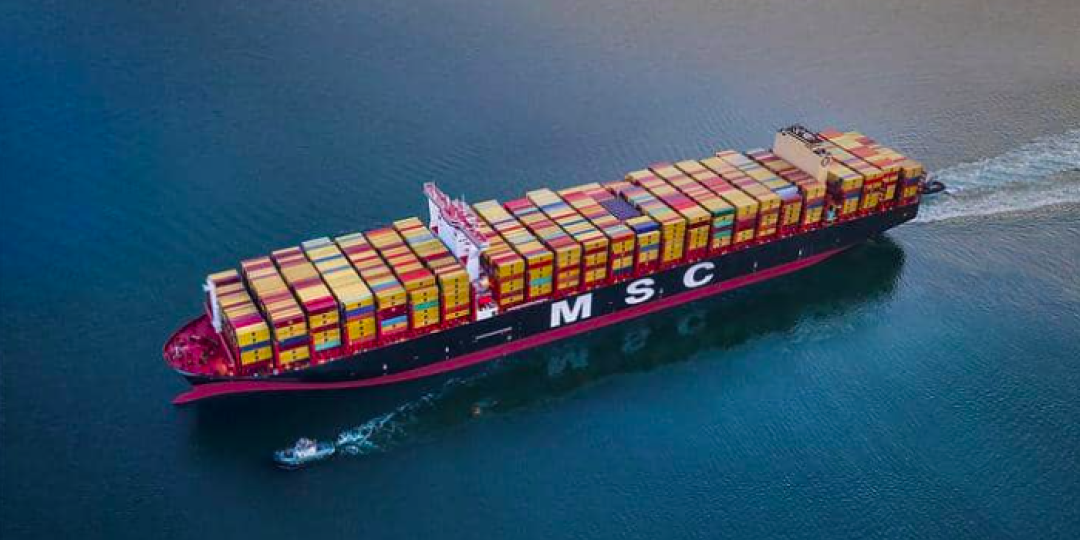An innovative first of its kind agreement between freight forwarder DB Schenker and shipping line MSC Mediterranean Shipping Company will ensure that at least 30,000 standard containers (TEU) can be transported with nett-zero emissions in 2023.
DB Schenker said in a statement on Wednesday that it was expanding its green ocean freight services and had secured the arrangement to use 12,000 metric tonnes of biofuel component for all its own consolidated cargo, less-than-container-load (LCL), full-container-load (FCL) and refrigerated containers (reefer containers), with the world’s largest shipping line.
The amount of biofuel purchased is enough to save an additional 35,000 metric tons of CO2 equivalents (CO2e) along the entire production chain in the market. The equivalent of around 30,000 standard containers (TEU) may be shipped with nett-zero CO2 emissions, depending on how the fuel is used during navigation.
The purchase agreement signed this month represents one of the largest carbon-insetting biofuel deals between a freight forwarder and a shipping company. It sets out the use of certified sustainable, second-generation biofuels – derived from used cooking oil – instead of conventional fossil-based marine fuel. The 12,000 metric tonnes of biofuel component will be blended between 20% and 30%, resulting in approximately 50,000 metric tonnes of blended biofuel to be used in MSC’s container ships.
The agreement allows DB Schenker to offer its customers an off-the-shelf product that enables nett-zero ocean transport along with an annual certificate of emission reduction for carbon footprint.
DB Schenker Global Board Member for Air and Ocean Freight, Thorsten Meincke, said customers would receive a clean solution using the latest generation of marine biofuel.
“We are doing this because we firmly believe it is the right thing to do and are therefore paying for biofuel purchases in advance. One thing is certain: the more customers demand climate neutrality throughout supply chains, the faster we achieve clean container ocean freight,” he said.
MSC Senior Vice President, Caroline Becquart, said the decarbonisation of ocean freight required collaboration between shipping lines, logistics companies and their customers.
“MSC Biofuel Solution is our first certified carbon insetting programme that reduces emissions in our customers’ supply chains, accelerating the energy transition by creating demand for nett-zero-carbon shipping and delivering direct CO2 savings. We’re delighted to partner with DB Schenker, with whom we share similar climate ambitions along our collective journey to nett zero,” said Becquart.
Biofuel can be used for regular ocean freight operations without adjusting a ship’s infrastructure or supply chain, making it a particularly convenient solution.













